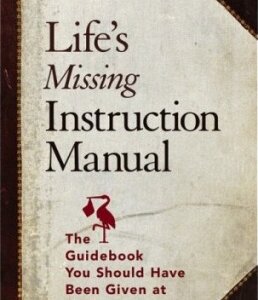Your “instruction manual” for your children or survivors should begin with the basics. First, do you have a Trust and Will? If so, have you written instructions for your kids (survivors) to follow at your death or disability?
In regards to your estate, are you concerned about probate and taxes? If so, you have done a good job to provide for your heirs and save unnecessary costs, fees, and taxes. If not, you may be leaving your kids with no clues as to what to do and no instructions for them to follow. It’s a well known habit that when all else fails, we read the instructions. But if we are left with no clues or instructions, what do we do? We waste a lot of time and money that tends to diminish your estate.
If you have a Trust, then you likely already have an instruction manual stating your goals as to who gets what and when they get it. The duties of your Successor Trustee are set forth in your Trust document and it is his/her fiduciary responsibility to abide by the law and the Trust. The Trustee must collect and manage assets, pay your debts and taxes and seek advice of counsel. Your goals to protect your loved ones can be carried out, if you state your goals loud and clear in your Trust.
Your “Final Instructions” may include specific distributions of special stuff /memorabilia/heirlooms/investments/etc to go to certain people. Instructions will often include tax planning for married couples, disability planning when you become unable to manage your financial affairs prior to death, and who you want to be in charge of your property when you die or are disabled. Provisions may be made in your trust for protecting your children from predators and special instructions will protect your disabled children.
Do you have a plan to protect your children in the event your surviving spouse remarries? Do you care if a child is disinherited? Do you want to protect a spendthrift? If you plan your Will and Trust with lots of “baby sitter” instructions, your children may be protected for life, and your grandchildren too. At the minimum, Final Instructions are important to avoid the consequences of doing nothing. I encourage you to take the time now to meet with an estate planning attorney such as myself to create or review your Final instructions.

